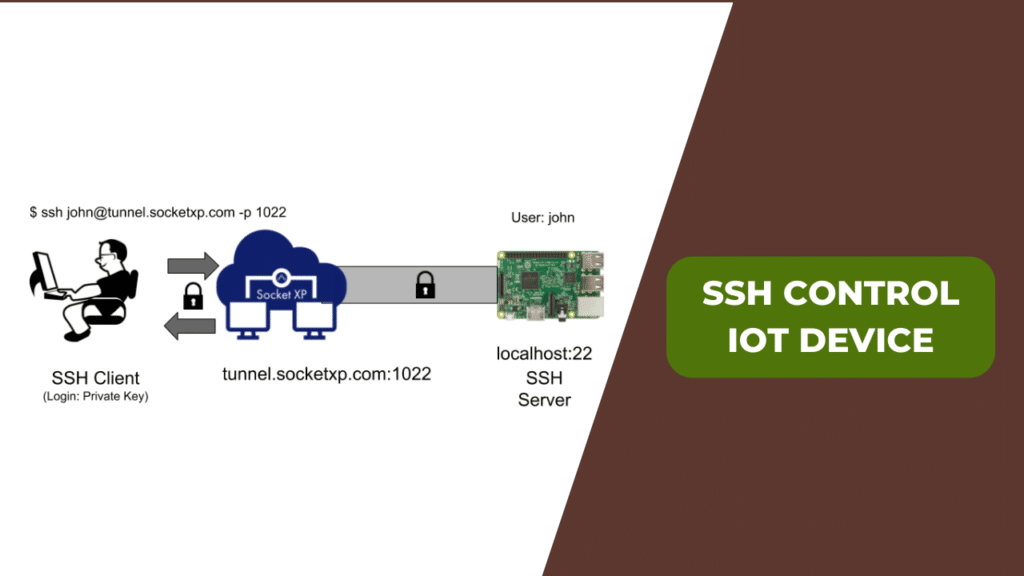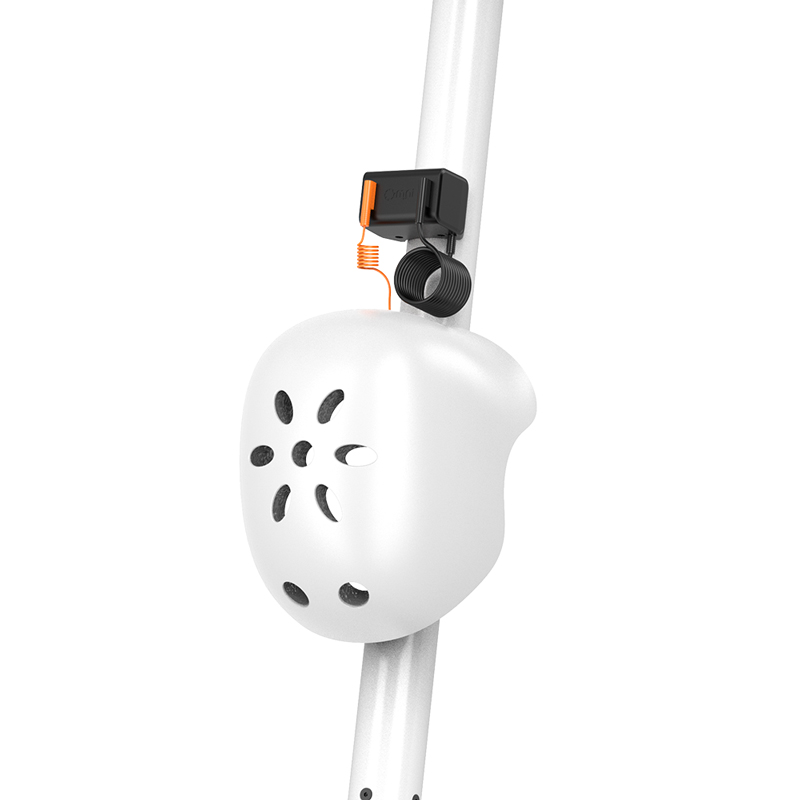In today's hyper-connected world, choosing the best SSH IoT device is crucial for ensuring secure communication between smart devices and networks. As more devices become part of the Internet of Things (IoT), the need for robust security measures has never been greater. Secure Shell (SSH) offers an encrypted communication protocol that safeguards data transmission, making it indispensable for IoT applications.
With cyber threats on the rise, understanding which SSH IoT device suits your needs is essential for maintaining privacy and protecting sensitive information. This article explores the top SSH-enabled IoT devices available in the market, their features, and why they stand out from the competition.
Whether you're a tech enthusiast, a professional IT administrator, or a business owner looking to secure your IoT infrastructure, this guide will help you make an informed decision. Let's dive into the world of secure IoT connectivity and discover the best SSH IoT device for your requirements.
Read also:Exploring Movierulz Web Series Page Your Ultimate Guide To Streaming Entertainment
Table of Contents
- Introduction to SSH IoT Devices
- Why SSH is Crucial for IoT Security
- Top SSH IoT Devices in the Market
- Criteria for Selecting the Best SSH IoT Device
- Raspberry Pi as an SSH IoT Device
- Key Security Features to Look For
- Comparison of Popular SSH IoT Devices
- Performance Metrics for SSH IoT Devices
- Common Issues and Troubleshooting Tips
- Future Trends in SSH IoT Technology
- Conclusion and Call to Action
Introduction to SSH IoT Devices
SSH IoT devices are hardware platforms equipped with Secure Shell (SSH) capabilities, enabling encrypted data transfer between IoT devices and networks. These devices play a vital role in securing communication channels, protecting sensitive information, and preventing unauthorized access.
Understanding SSH
SSH is a cryptographic network protocol designed to provide secure communication over an unsecured network. It encrypts all data transmissions, ensuring confidentiality, integrity, and authentication. In the context of IoT, SSH helps safeguard devices from cyber threats such as eavesdropping, man-in-the-middle attacks, and data breaches.
Why IoT Needs SSH
As IoT devices continue to proliferate, the need for robust security measures becomes increasingly important. SSH addresses this need by offering end-to-end encryption, secure remote access, and reliable authentication mechanisms. By integrating SSH into IoT devices, users can enjoy peace of mind knowing their data is protected.
Why SSH is Crucial for IoT Security
SSH plays a pivotal role in securing IoT ecosystems. Unlike traditional networks, IoT devices often operate in uncontrolled environments, making them vulnerable to cyberattacks. SSH mitigates these risks by providing:
- End-to-end encryption for secure data transmission.
- Strong authentication mechanisms to prevent unauthorized access.
- Secure remote management capabilities for efficient device maintenance.
According to a report by Gartner, the number of IoT devices worldwide is projected to reach 25 billion by 2030. With such a massive expansion, ensuring secure connectivity through SSH becomes paramount.
Top SSH IoT Devices in the Market
Several manufacturers offer high-quality SSH IoT devices tailored for various use cases. Below are some of the best options available:
Read also:Unlocking The World Of Ullu Video Your Ultimate Guide
Raspberry Pi
The Raspberry Pi is a popular single-board computer widely used in IoT applications. It supports SSH out of the box, making it an ideal choice for secure IoT deployments. Its affordability, versatility, and large community support make it a top contender in the SSH IoT device market.
NVIDIA Jetson Nano
Designed for AI and edge computing, the NVIDIA Jetson Nano combines powerful processing capabilities with SSH support. This device is perfect for advanced IoT applications requiring machine learning and computer vision functionalities.
ESP32
The ESP32 is a low-cost, dual-core microcontroller with built-in Wi-Fi and Bluetooth capabilities. It supports SSH, making it suitable for lightweight IoT projects that demand secure communication.
Criteria for Selecting the Best SSH IoT Device
When choosing an SSH IoT device, consider the following criteria:
- Security Features: Ensure the device offers robust encryption, secure boot, and tamper protection.
- Performance: Evaluate the device's processing power, memory, and storage capacity to meet your application's requirements.
- Connectivity Options: Look for devices with multiple connectivity options, such as Wi-Fi, Ethernet, and Bluetooth.
- Compatibility: Choose a device compatible with your preferred operating system and programming languages.
Raspberry Pi as an SSH IoT Device
The Raspberry Pi has become a go-to solution for SSH IoT projects due to its versatility and ease of use. Its ability to run various operating systems, combined with its SSH capabilities, makes it an excellent choice for secure IoT deployments.
Advantages of Raspberry Pi
- Open-source software support.
- Extensive community resources and tutorials.
- Compatibility with a wide range of sensors and peripherals.
Key Security Features to Look For
When evaluating SSH IoT devices, pay attention to the following security features:
- Encryption Standards: Ensure the device supports modern encryption protocols such as AES-256 and RSA-2048.
- Secure Boot: Verify that the device implements secure boot to prevent unauthorized firmware modifications.
- Firewall Capabilities: Look for devices with built-in firewall support to enhance network security.
Comparison of Popular SSH IoT Devices
Below is a comparison of some popular SSH IoT devices based on key performance metrics:
Raspberry Pi vs. NVIDIA Jetson Nano
While both devices offer SSH capabilities, the Raspberry Pi excels in affordability and community support, whereas the NVIDIA Jetson Nano shines in AI and edge computing applications.
ESP32 vs. Particle Photon
The ESP32 provides superior processing power and connectivity options compared to the Particle Photon, making it a better choice for complex IoT projects requiring SSH security.
Performance Metrics for SSH IoT Devices
To ensure optimal performance, consider the following metrics when selecting an SSH IoT device:
- Processing Speed: Measure the device's CPU clock speed to gauge its performance capabilities.
- Memory Capacity: Evaluate the amount of RAM and storage available for running applications and storing data.
- Power Consumption: Assess the device's power efficiency, especially for battery-powered IoT deployments.
Common Issues and Troubleshooting Tips
When working with SSH IoT devices, you may encounter various issues. Below are some common problems and their solutions:
- Connection Errors: Verify that the device's SSH server is running and check network configurations.
- Authentication Failures: Ensure you're using the correct SSH credentials and verify key pair settings.
- Performance Bottlenecks: Monitor system resources and optimize applications for better performance.
Future Trends in SSH IoT Technology
The future of SSH IoT technology looks promising, with advancements in quantum encryption, zero-trust architectures, and edge computing driving innovation. As IoT ecosystems grow more complex, the demand for secure, scalable SSH solutions will continue to rise.
Conclusion and Call to Action
Choosing the best SSH IoT device requires careful consideration of security features, performance metrics, and compatibility requirements. Devices like the Raspberry Pi, NVIDIA Jetson Nano, and ESP32 offer excellent options for secure IoT deployments, catering to diverse use cases and budgets.
We invite you to share your thoughts and experiences with SSH IoT devices in the comments section below. Additionally, explore our other articles for more insights into IoT security and technology trends. Together, let's build a safer, smarter, and more connected world!


